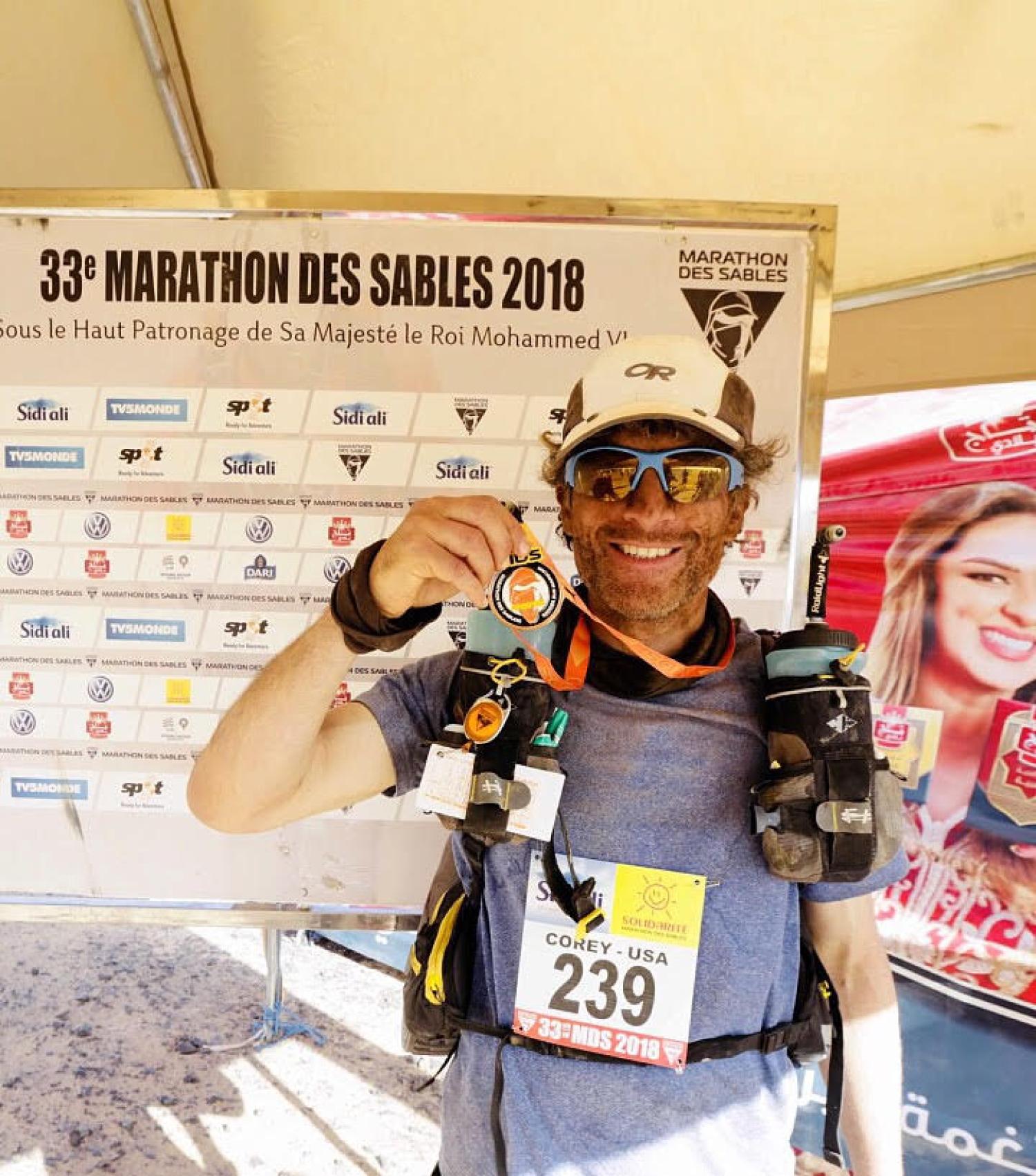
Toughest Footrace on Earth

Last April, when Corey Cappelloni (Law’04) stepped up to the starting line of the Marathon des Sables — a six-day, 156-mile ultra marathon through the heart of the Sahara Desert — his mind was calm.
“Life became very simple at that point. No email, no texting, no deadlines... All I had to do was put one foot in front of the other,” said the asylum officer with the U.S. Department of Homeland Security.
He’d run ultra marathons before — but never in the world’s largest hot desert, a race the Discovery Channel has dubbed “the toughest footrace on Earth.”
Since 1986, three people have died trying to complete the race in southern Morocco. Routinely, hundreds fail to finish.
Organizers provide water refills every 10 miles and open tents to sleep in, but little else. Runners carry all their own survival supplies, including anti-venom kits.
“Initially, I was totally intimidated by the idea of the race,” said Cappelloni, one of nearly 1,000 participants from 60 countries in the latest event.
He’d signed up in 2015, then dropped out after contracting typhoid fever and a stomach parasite during a work trip in Tanzania. In 2016, he still didn’t feel ready.
Finishing the 2017 Half Marathon des Sables, a 70-mile race on an island off the Moroccan coast, gave him confidence. The first American to finish, he placed 31st overall.
“Then I was kinda like, ‘I can do this,’ said Cappelloni, who trained in winter garb with a backpack full of Colorado Law books.
But four months before the Sahara race, Cappelloni hurt his hip, losing six weeks of training time.
“I went from running nearly 90 miles a week to not being able to walk the four blocks to the metro,” he said.
Cappelloni considered dropping out again, but Jay Batchen, the race’s North American representative, convinced him not to.
“It was too late to get a refund, so I just told him to go for it,” said Batchen, who has finished the race 13 times.
“It’s a life changing experience...you really can’t explain it, you just have to experience it. People do the race because it’s very different than everyday life. It takes you out of your comfort zone. Of course, you have to be a little crazy, too,” he said.
Turns out, Cappelloni’s hip injury wasn’t the thing to worry about.
Thirty-five miles into the race’s fourth day, his right leg began to hurt. When he arrived at camp, quarter-sized blisters engulfed his feet.
He was in agony and too tired to open his backpack for food.
Then a race organizer handed him a letter.
The fine white paper seemed strange in his hands, a foreign object in the middle of one of the world’s largest deserts. It was from his 9-year-old daughter, Emma. “Happy Birthday, Papa!” it read.
The next day, Cappelloni could barely walk. The medics said it was most likely a stress fracture.
For 26 grueling miles, he limped through the sprawling desert, pain pulsing with every step.
He thought about the unthinkable distances refugees travel when forced to flee their homes, often over inhospitable terrain with all they can carry on their backs.
“I knew I could keep going,” he said.
When he crossed the finish line, he called Emma and thanked her for believing in him.
“You forget the pain and the sweat and the blood and everything, and you just remember the life-changing experience,” said Cappelloni. "We’ll see what I do next. I’m just enjoying my daily jogs and spending time with my daughter.”
Photo courtesy Corey Cappelloni

